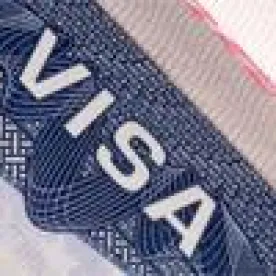Federal Judge Andrew Hanen of the Southern District of Texas has ordered the suspension of two key aspects of President Obama’s November 2014 Executive Action on immigration: (1) the expansion of the “DACA” (Deferred Action for Childhood Arrivals) program and (2) the new “DAPA” (Deferred Action for Parents of Americans and [of] Lawful Permanent Residents).
The Federal government has announced it will appeal the temporary injunction. In the meantime, both new programs are suspended.
DACA is currently available to certain foreign nationals provided they were still under the age of 31 on June 15, 2012. The now-suspended DACA expansion would expand the availability of employment authorization and deferral of removal actions against undocumented foreign nationals who entered the U.S. before their 16th birthdays.
The DAPA program, also suspended, is a program that was scheduled to go into effect in August 2015. This program would provide employment authorization and deferral of removal actions to certain parents of U.S. Citizens and Lawful Permanent Residents (“green card” holders). DAPA beneficiaries would not be limited to those who came to the U.S. as children. The focus of that program is on deferring removal actions against qualifying parents, for whom removal could divide them from their Citizen and lawful resident children or force those children out of the U.S.
U.S. Citizenship and Immigration Services (“USCIS”) was to have begun accepting applications yesterday, February 18th, under the DACA expansion. However, now the agency states on its web site, “Due to a federal court order, USCIS will not begin accepting requests for the expansion of DACA on February 18 as originally planned.”
Although the injunction emanates from a lower federal court in Texas, Secretary Jeh C. Johnson of the U.S. Department of Homeland Security has announced that the Department has suspended the two new programs nationwide. Hence, potential applicants for either program anywhere in the U.S.—not only in the area under the Court’s Southern Texas jurisdiction—are precluded from applying for either program until further notice.
The suspension will be in effect until the Federal government’s appeal of Judge Hanen’s temporary injunction is resolved, Secretary Johnson said. It appears, therefore, the two new programs could be delayed for at least weeks or months, if not permanently.
Judge Hanen did not base his injunction on the States’ constitutional objections to the programs. Rather, the judge found that the Secretary of Homeland Security’s actions in implementing these actions failed to comport with the “notice and comment” requirements of the federal Administrative Procedure Act for issuing regulations, and that the state plaintiffs had standing to complain of Secretary’s actions. Those requirements require that the government provide notice and an opportunity for comment on proposed new rules—thus accepting the plaintiff States’ position that the programs amounted to a rulemaking.
Judge Hanen did go further. While generally conceding that the Secretary has broad prosecutorial discretion, as long as he stays within the law, here, he said, the Secretary went beyond merely withholding enforcement against certain violators: he bestowed benefits on them. “Instead of merely refusing to enforce the [INA’s] removal laws against an individual, the DHS has enacted a wide-reaching program that awards legal presence to individuals Congress has deemed deportable or removable, as well as the ability to obtain Social Security numbers, work authorization permits and the ability to travel.” Non-enforcement does not entail “bestowing multiple otherwise unobtainable benefits upon the individual,” he said.
“Deferred action” is a long-standing immigration procedure whereby Federal immigration authorities elect not to take removal action against certain removable (a.k.a. “deportable”) foreign nationals, based on certain criteria such as risk of harm to society and in the interest of prioritizing prosecution resources. The basis of granting deferred action is “prosecutorial discretion.” This concept is the discretion that prosecutors—whether in civil setting such as immigration, or in criminal settings such as local district attorney offices—exercise in determining which cases to prosecute. When the government makes a decision to defer action for a defined category of removable foreign nationals, as opposed to for an individual foreign national, this is termed “categorical prosecutorial discretion.”




 />i
/>i

